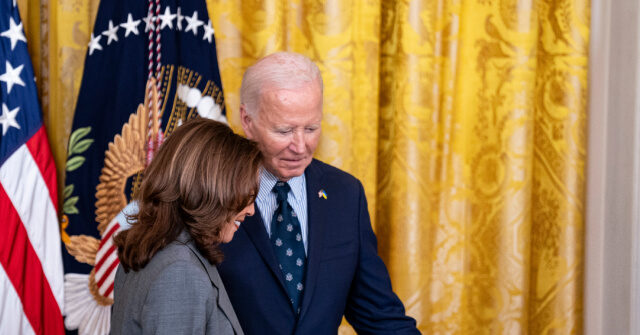In a recent interview on Fox News Channel’s “Special Report,” Vice President Kamala Harris attempted to distinguish herself from the Biden-Harris administration’s track record. Amid rising costs, geopolitical tensions, and immigration challenges, she faced pointed questions about the administration’s performance and the perceived dissatisfaction among the American public. With over 70% of Americans believing that the country is headed in the wrong direction, Fox News host Bret Baier pressed her on what significant changes would be enacted if she were to take a leading role in addressing these issues.
Harris’s response highlighted her position as being distinct from President Biden, stating, “I’m obviously not Joe Biden,” but she refrained from providing any concrete policy proposals. This lack of specificity was a consistent theme throughout her interviews, including a recent appearance on “The View,” where she also struggled to articulate changes she would implement or actions she would take that differ from the establishment’s previous four years in office. Baier’s inquiries worked to emphasize the contrast between the administration’s tenure and the public’s belief that fundamental changes are necessary.
Despite attempting to shift the narrative towards former President Donald Trump—labeling him as unfit and a danger to the nation—Harris’s comments fell short in defining her own policy agenda. Instead of presenting a vision that moves forward from the policies of the past, she focused on attacking Trump’s character and stability, perhaps aiming to galvanize the base in opposition to a familiar rival. However, such tactics failed to provide clear answers about what her administration would prioritize moving forward, especially for a campaign that touts a “new way forward.”
Within her media engagements, Harris struggled to maintain the image of an agent of change that she previously campaigned for. By not naming specific policies she would pursue differently, she inadvertently reinforced the perception that she is closely aligned with the current administration—a stance that could alienate voters looking for accountability and new ideas. This disconnect became especially evident as Biden repeatedly sought to tie her to the administration’s achievements and shortcomings, further complicating her ability to establish a distinct campaign narrative.
Adding to her dilemma, Harris faces a challenging catch-22: to address critical issues such as crime rates, inflation, and border security, she would need to critique the very policies of the Biden-Harris administration that she represents. However, if she supports the administration’s policies, she risks losing credibility in the eyes of voters who are clamoring for new solutions. This precarious position risks undermining her potential candidacy as she navigates the complexities of party loyalty while remaining responsive to voter dissatisfaction.
In summary, Vice President Kamala Harris’s recent interviews have highlighted the difficulties she faces in asserting her independence from the Biden-Harris administration. By failing to articulate specific policy changes while navigating criticisms of the existing administration’s record, she risks losing the support of voters who seek substantive solutions. With mounting public frustration over various national issues, Harris needs to establish a clearer stance that resonates with constituents while also differentiating herself from both the current administration and her political adversaries, or she may find it increasingly challenging to build the momentum necessary for her presidential aspirations.

